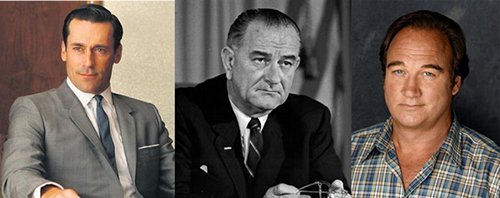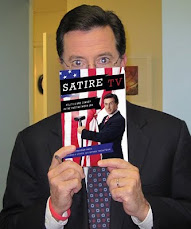TITLE: From Flame Wars to Web Redemption: Tosh.0, Comment Comedy, and Participatory Humiliation
In the summer of 2010, Daniel Tosh pulled off a Comedy Central coup: his show, Tosh.0, was drawing more viewers than the cable network’s cornerstone, The Daily Show with Jon Stewart. True, Tosh only put one new episode on the air each week to Stewart’s “daily”, but in the land of basic cable comedy, this seemed a significant milestone. The show had more than doubled its viewership from the previous, premiere summer, and Daniel Tosh was, in the words of The New York Times, “indisputably the television comedian of the moment.” Most surprisingly, Tosh had done it all on a clip show featuring online videos that many people had already seen.
Rather than breathing new life into a traditional television format like the talk show or sitcom, Tosh and the producers of the show had fashioned this successful television comedy from an online media model of participatory culture. In each episode, Tosh was essentially doing the same thing that anonymous viewers all over the world had been doing for at least the last five years: commenting on YouTube videos of individuals humiliating themselves in an infinite number of ways. True, making snarky comments about television on television isn’t exactly ground-breaking. Clip shows like Talk Soup (and other non-Kardashian programming on E!) essentially edit entire genres of TV into “Greatest Hits” packages along with sniping comments about famous and not-so-famous hosts, stars, and guests. Beavis and Butthead’s video rants were symptomatic not just of pubescent hormones, but dissatisfaction with the MTV-media ferment of the 1990s. Even Bob Saget on America’s Funniest Home Videos wasn’t above a gentle jibe at Dad, Junior, or Rover.
But all that took place (and the format of the clip show was essentially set) before two key developments: 1) YouTube and 2) the expansion of online commenting beyond isolated conversations on fan message boards to the common convergent media practice it has become. Comments posted by individuals (who used to be considered viewers/consumers) now provide a legitimate draw in their own right, especially for those who enjoy taking pleasure in the pain and failures of others. The participatory culture of comically commenting on “failures” can target everything from a lousy episode of an expensively produced TV show, showcased on an official web site, to a low-res, mobile phone-shot clip of backyard wrestling, to a badly produced, early 1990s hip-hop video. Whether actually commenting on the footage, or laughing at other people’s comments, there are abundant opportunities to participate in the culture of humiliation comedy without actually being the person shooting the video or--heaven forbid--its subject.
This paper will discuss this development of “comment comedy” in participatory media culture, as well as the specific strategies that Tosh.O has used to turn those activities into television content. Included will be consideration of Daniel Tosh’s willingness to humiliate himself, and how that humiliation may be used to create a masculine identity privileged to engage in “politically incorrect” comic commentary.










